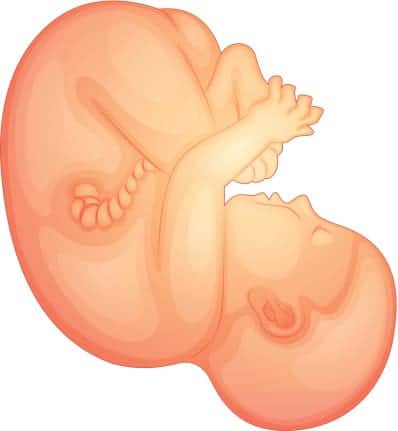
The human body has a built-in shield that protects the vulnerable developing foetus. In most cases, even when mom falls ill, the baby is fine. Yet certain diseases specifically target the foetus, and the mother may not show symptoms of a serious infection. Normally, the placenta not only supplies the growing baby with nutrients and oxygen, it also acts as a filter that keeps the baby safe from any viruses or bacteria that may have infected mom.
However, there are several exceptions. Certain diseases easily bypass the mother’s defences and cross the placental barrier to infect the foetus, with devastating consequences. Doctors refer to these particularly deadly infections as TORCH diseases. The name is a medical acronym for a list of diseases, any of which can target the baby during critical growth stages and cause brain damage, deformations and miscarriage. These diseases include malaria, Lyme disease, chicken pox, rubella and herpes. The good news is that most of these diseases are not easily picked up or transmitted.
Dr. John Kingdom, Obstetrics and Gynaecology Chair at Mount Sinai Hospital, says women looking to get pregnant can avoid infecting their baby by taking a few precautions. First, they should not travel to malaria-infected areas when they’re pregnant or are looking to get pregnant. Malaria, which is caused by a blood-infecting parasite, is a seasonal disease. The Public Health Agency of Canada keeps track of high-risk areas and lists up-to-date information on their website.
Children are vaccinated against rubella, which is also called German measles. It causes serious problems with heart, lung and brain development in the baby and can result in a miscarriage. Women should make sure their vaccinations are up-to-date before they get pregnant, Dr. Kingdom says.
Persistent diseases such as herpes, hepatitis or HIV can also target the baby. The good news is that precautionary measures can be taken. Women should get tested, before they get pregnant, for any STD or other diseases that could infect the baby, says Dr. Kingdom.
The dangerous-sounding cytomegalovirus often infects daycare centres. Women with toddlers in childcare should be extra careful to avoid contracting the virus, which only causes mild illness in young children or adults yet can be serious for the foetus. Regular hand washing is vital.
Leslie Solomonian, a professor at the Canadian College of Naturopathic Medicine, says there are some simple ways women looking to get pregnant can keep their immune system in fighting form.
“It’s important women get lots of rest, lots of fluids and manage their stress,” she said. Women often try to do too much, even when pregnant, and taking the time to breathe and relax is key, Solomonian adds. Certain naturopathic practises are not a good idea for women trying to conceive, she says. “In general, detoxification shouldn’t be encouraged during pregnancy,” Solomonian says. “In the first three months, the baby is especially vulnerable because its nervous system and organs are developing.”
A prescribed probiotic can help keep the bacteria in the gut and vaginal canal healthy in preparation for birth, she explains. Solomonian cautions that some herbs can be toxic to the foetus, so it’s important that women review all herbal and pharmaceutical prescriptions with their doctor and naturopath before they try to conceive.
What does TORCH stand for?
T.
Toxoplasmosis: the disease is caused by exposure to raw meat or cat feces and results in mild flu-like symptoms in adults. Most adults have immunity to the disease.
O.
Other infections including malaria, HIV, syphilis and hepatitis can infect the baby.
R.
Rubella or German measles cause mild flu-like symptoms and a three-day rash. Most adults are vaccinated against the disease in childhood as part of the MMR shot.
C.
Cytomegalovirus is a herpes class of virus and causes very mild symptoms. Most adults have immunity to the illness because they have been exposed as children. Hand washing can present the disease.
H.
Herpes simplex virus causes blisters to the mouth or genitals, depending on whether it is type I or type II.











